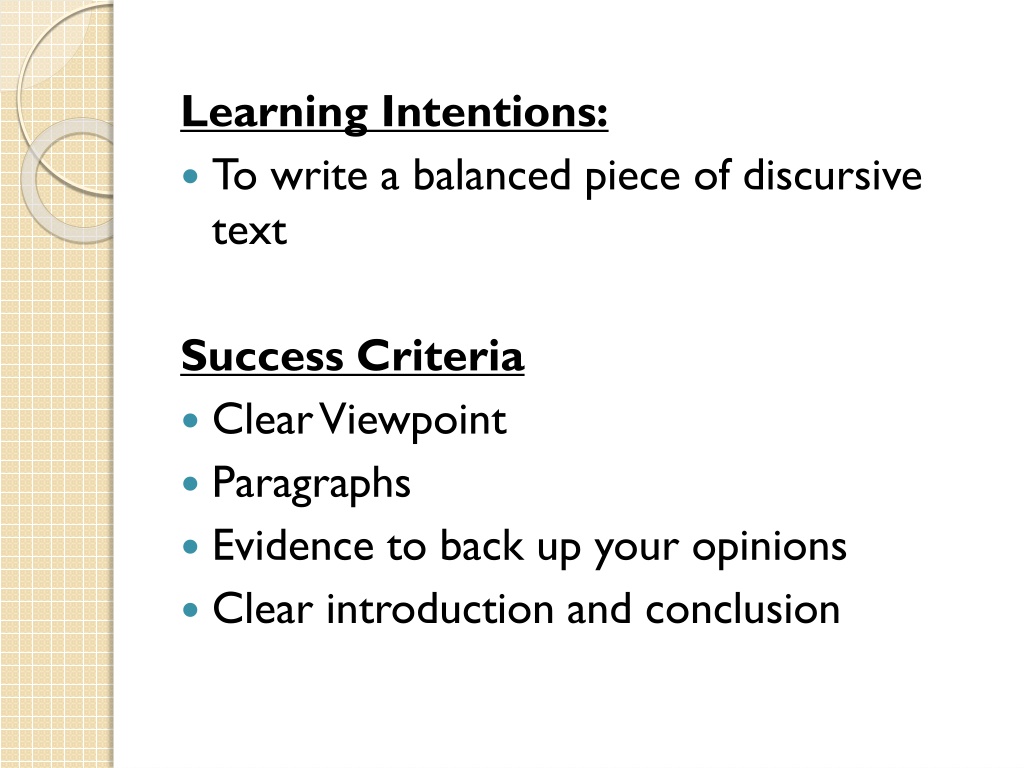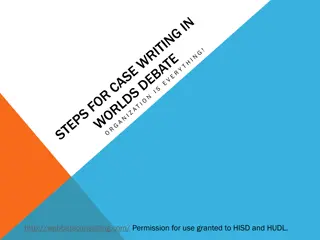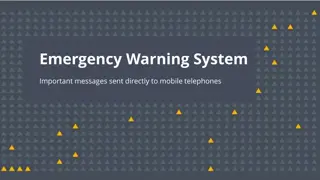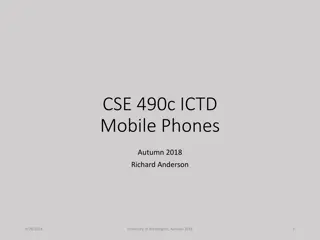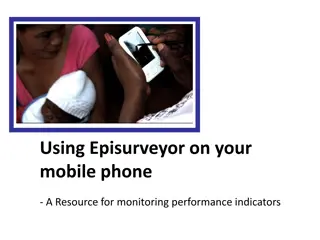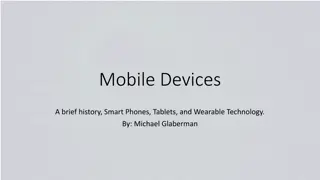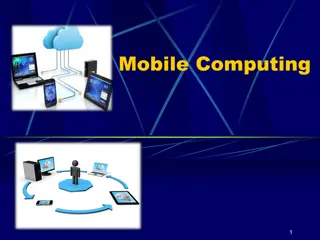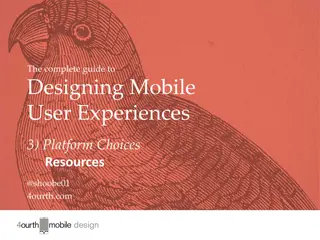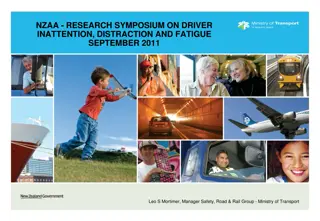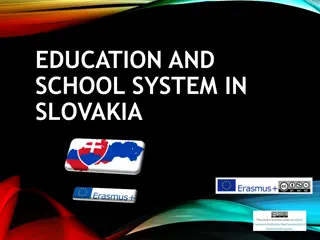Debate on Allowing Mobile Phones in Schools
The debate on whether mobile phones should be allowed in schools is fueled by contrasting viewpoints. Proponents argue for benefits like safety and communication, while opponents raise concerns about distractions and health risks. Both sides present valid arguments that continue to fuel a contentious discussion in educational settings.
Download Presentation

Please find below an Image/Link to download the presentation.
The content on the website is provided AS IS for your information and personal use only. It may not be sold, licensed, or shared on other websites without obtaining consent from the author. Download presentation by click this link. If you encounter any issues during the download, it is possible that the publisher has removed the file from their server.
E N D
Presentation Transcript
Learning Intentions: To write a balanced piece of discursive text Success Criteria Clear Viewpoint Paragraphs Evidence to back up your opinions Clear introduction and conclusion
What is a discursive text? to present a balanced view of an issue; to carefully select and organise information from both sides of an issue; each side needs explanation, evidence and/or examples; the writer may conclude by giving his/her own opinion;
In the following piece of writing see if you can identify the features below: Structure Language Introduction Statistics (facts and figures e.g. 75% people think that...) Connectives (however, furthermore etc) Formal language (posh words e.g. high proportion etc) Discussion phrases (sentences that introduce an argument e.g. Some people believe..., this might mean etc) Arguments for Arguments against Conclusion
Should mobile phones be banned in schools? In the last few years there has been an explosion in the use of new communications technologies, including mobile phones; it is estimated that over 70% of young people aged 10 14 now own one. Considerable debate has taken place in the press recently as to whether pupils should be allowed to take their mobile phones into school. Some people believe that there are many positive benefits of allowing children to communicate freely with each other, and pupils argue that using a mobile phone to talk to or text-message their friends is simply one way of doing this, using new technology. Many parents like the reassurance of knowing their child can be safer and more independent if they have a mobile phone, since they can contact them at any time if necessary.
On the other hand it could be argued that carrying a mobile phone could in itself make a child more vulnerable to theft or mugging, both on the street and even in the playground. Police figures confirm that a high proportion of crimes committed against young people involve thefts of mobile phones. Schools are concerned, moreover, that allowing pupils to bring their mobiles to school could create a competitive atmosphere amongst children and result in some children feeling left out and unvalued. Furthermore they claim that pupils education would be affected by the distraction of phones ringing in class. Some doctors are also against children using mobile phones at school. They fear that children using mobiles could suffer long-term health problems. It can be seen that there are a lot of conflicting views on the use of mobile phones by school children. This is clearly an issue which will continue to be debated.
Should mobile phones be banned in schools? In the last few years there has been an explosion in the use of new communications technologies, including mobile phones; it is estimated that over 70% of young people aged 10 14 now own one. Considerable debate has taken place in the press recently as to whether pupils should be allowed to take their mobile phones into school. Some people believe that there are many positive benefits of allowing children to communicate freely with each other, and pupils argue that using a mobile phone to talk to or text-message their friends is simply one way of doing this, using new technology. Many parents like the reassurance of knowing their child can be safer and more independent if they have a mobile phone, since they can contact them at any time if necessary. On the other hand it could be argued that carrying a mobile phone could in itself make a child more vulnerable to theft or mugging, both on the street and even in the playground. Police figures confirm that a high proportion of crimes committed against young people involve thefts of mobile phones. Schools are concerned, moreover, that allowing pupils to bring their mobiles to school could create a competitive atmosphere amongst children and result in some children feeling left out and unvalued. Furthermorethey claim that pupils education would be affected by the distraction of phones ringing in class. Some doctors are also against children using mobile phones at school. They fear that children using mobiles could suffer long-term health problems. It can be seen that there are a lot of conflicting views on the use of mobile phones by school children. This is clearly an issue which will continue to be debated.
Essay Plan Introduction Main point for 2nd point for 3rd point for 1st point against and rebuttal 2nd point against and rebuttal 3rd point against and rebuttal Conclusion
Introduction There are 4 main types of opening paragraph for a discursive essay. 1. Provocative e.g. it is difficult to see how anyone could possibly disapprove of 2. Balanced e.g. People hold strongly contasting views about the subject of 3. Personal e.g. I have always hated .since the time when I was once physically sick when . 4. Illustrative e.g. On a beautiful sunny day, a terrified exhausted animal is being savaged to death by a pack of dogs while jeering, expensively dressed humans look on.
Example Introduction Vile. Behind closed laboratory doors, right now, there are animals suffering. Animal testing kills millions of animals each year; we must take action against this sickening system. It is essential animal testing is made illegal to stop the suffering, now.
Essay 1. Introduction what is your topic? What opinions do people have? What will you be talking about? 2. 2 or 3 Points for One point in each paragraph, back it up with evidence, give your opinions and explain what this evidence tells us? 3. 2 or 3 Points against - One point in each paragraph, back it up with evidence, give your opinions and explain what this evidence tells us? 4. Conclusion what is the answer to the question? Why do you think this?
Main points Point what is this paragraph taking about? Evidence what facts/real life examples do you have to prove this? Explain - Give your opinion, do you agree? What do you think this tells us about your topic?
Techniques In your main paragraphs try to use the following techniques: rhetorical questions emotive language repetition of words, phrases or sentence structure
Example paragraph The sheer extent of time devoted to social media by teenagers today immediately deprives them of precious time necessary for, among other things the usage and development of face-to-face social skills. According to a recent study by The Telegraph newspaper, the average UK teenager spends over 31 hours a week on social media equating to just over 4 hours a day. This colossal length of time could be used more valuably by interacting face-to-face with others. The same study also found that a staggering one in four people now spend more time socialising online than in-person, once again leading to the loss of human interaction and therefore basic social and basic communication skills.
